Interdisciplinary learning connects subject areas to foster deeper understanding and real-world relevance. By engaging in integrated units and projects, our students enhance critical thinking, collaboration, and lifelong learning.
This article examines what interdisciplinary learning entails, its benefits, practical implementations, parental support strategies, and UNIS Hanoi’s distinctive approach.
What Is Interdisciplinary Learning?
Interdisciplinary learning is a collaboration of two or more disciplines to address a theme, problem, or question, enabling students to integrate and apply knowledge across subject boundaries.
MYP (Middle Years Programme) students demonstrate interdisciplinary understanding by explaining phenomena, solving problems, or designing and developing innovative products using concepts, procedures, and forms of communication from multiple subject groups.
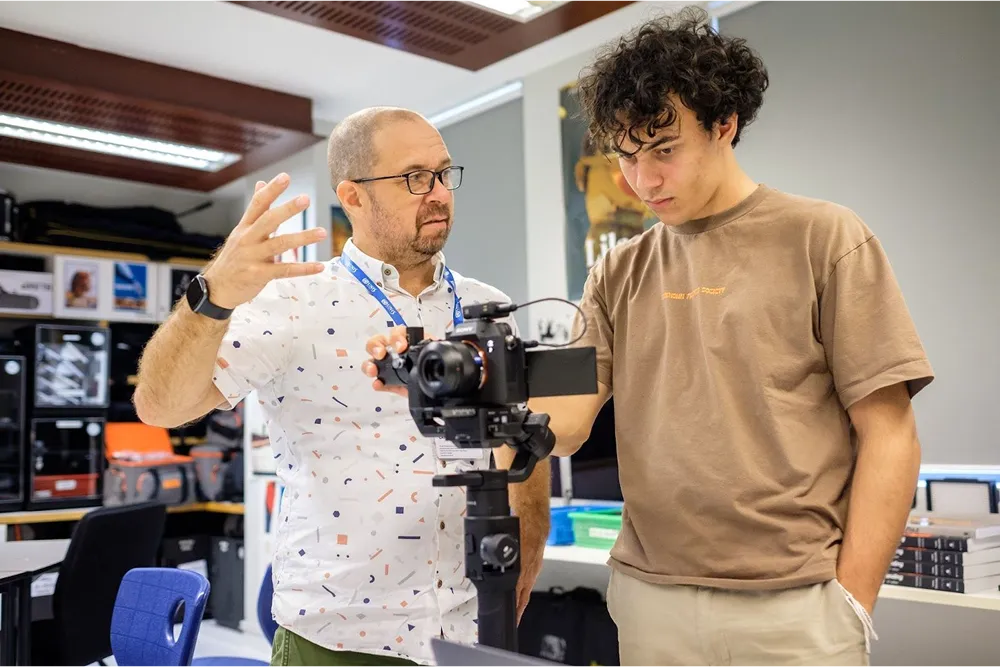
This approach mirrors real-world practice, as professionals routinely draw on diverse fields to address complex issues. Interdisciplinary learning focuses on the relationships between disciplines and enables students to understand how their work connects with life beyond school.
Benefits of Interdisciplinary Learning
Interdisciplinary learning yields multiple educational advantages:
- Critical Thinking Skills: Viewing problems through different disciplinary lenses encourages students to evaluate information and alternative solutions, enhancing critical thinking skills.
- Holistic Understanding: Combining thinking from different subjects to attain a broad understanding of intricate issues, which prevents compartmentalised thinking and promotes deeper understanding.
- Real-world Relevance: Solving real-life issues in class helps learners acquire the knowledge needed for modern life and future employment.
- Collaboration and Communication: Working in diverse teams strengthens interpersonal skills, as students learn to articulate ideas clearly and negotiate differing perspectives.
- Academic Success: Connecting subjects supports memory retention and transfer of learning, often resulting in improved performance across core disciplines.
- Global Perspective: Addressing global themes, such as sustainability or social justice, encourages students to consider worldwide contexts and develop empathy for diverse cultures and viewpoints.
- Lifelong Learning: The skills cultivated through interdisciplinary learning, including curiosity, adaptability, and problem-solving, prepare students for ongoing personal and professional growth beyond school.
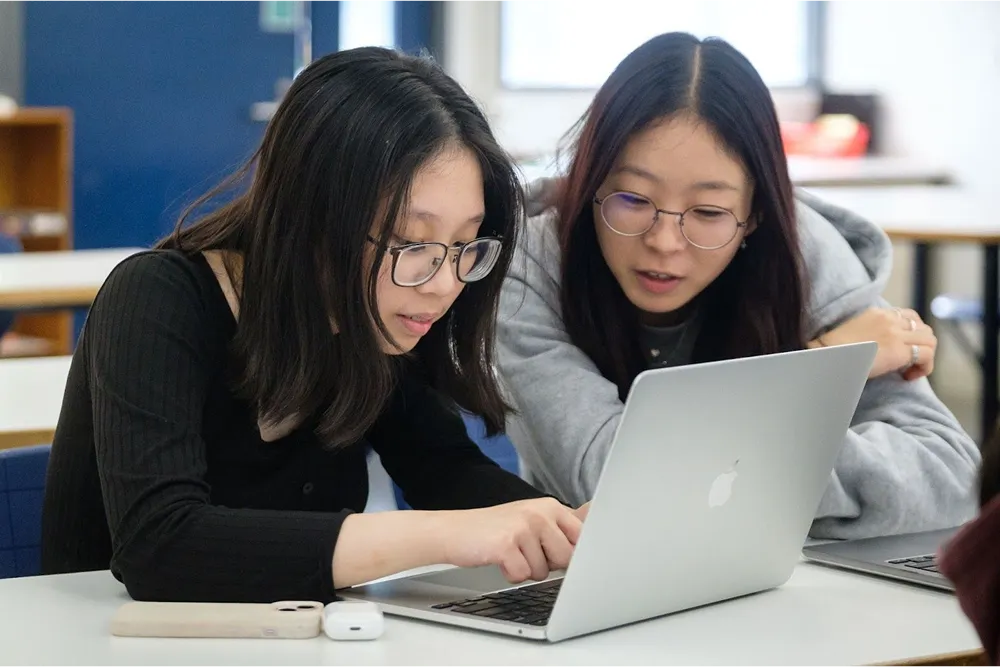
By offering these benefits, interdisciplinary learning equips students with the competencies and mindset essential for success in an increasingly complex, interconnected world.
How Schools Implement Interdisciplinary Learning
Bridging subject boundaries requires creative teaching and thoughtful design. At UNIS Hanoi, these strategies form an integral part of our MYP approach.
Project-Based Learning (PBL)
UNIS Hanoi MYP Project-Based Learning enables students to explore and address real-world issues on an extended timeline, forming strong connections between their learning and life beyond the classroom.
Through cycles of planning, execution, and evaluation, learners hone research skills, collaborative practices, and communication strategies.
At UNIS Hanoi, Phoenix’ Nest exemplifies PBL in practice. Here, students tackle sustainability projects, such as reducing single-use plastics and exploring renewable energy, by combining scientific investigation with environmental advocacy.
Besides, cultural exploration initiatives invite learners to craft exhibitions on Hanoi’s heritage, melding art, history, and language.
Theme-based Units
Theme-based Units structure the MYP curriculum around central ideas, such as identity, systems, or innovation, to encourage students to draw connections across subjects.
Each unit begins with a compelling inquiry question, followed by scaffolded activities.
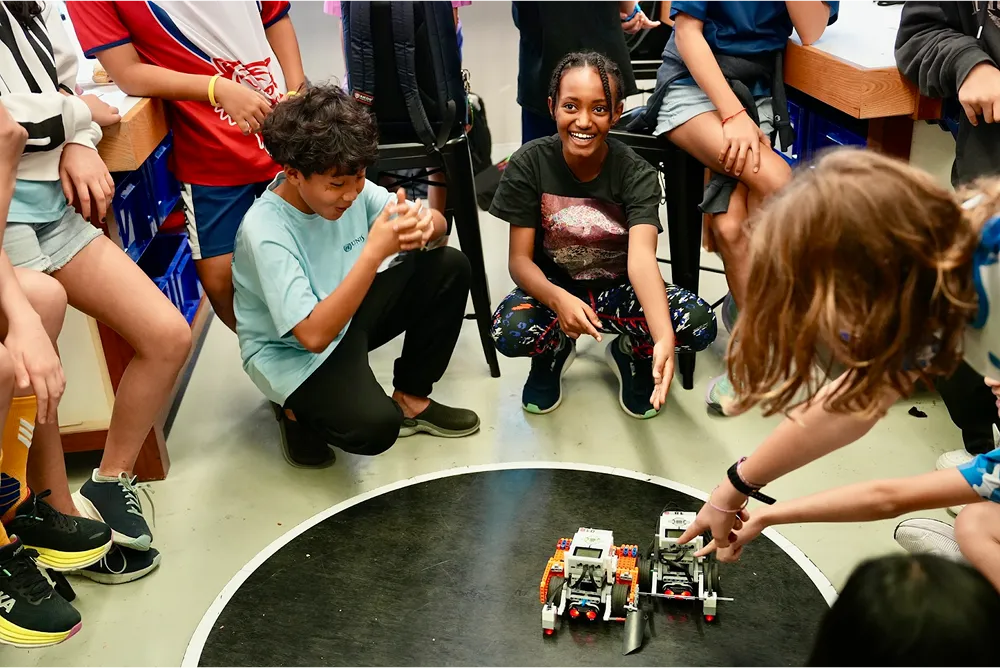
For instance, UNIS Hanoi’s programme illustrates this through its English Language and Literature 7 course, which investigates dystopian narratives and their commentary on contemporary issues.
Students examine novels, films, and media, participate in writing workshops, and produce creative texts ranging from short stories to analytical essays.
STEM and Arts (STEAM)
Integrating STEM and Arts (often termed STEAM) encourages MYP students to apply scientific and mathematical principles alongside creativity and design thinking.
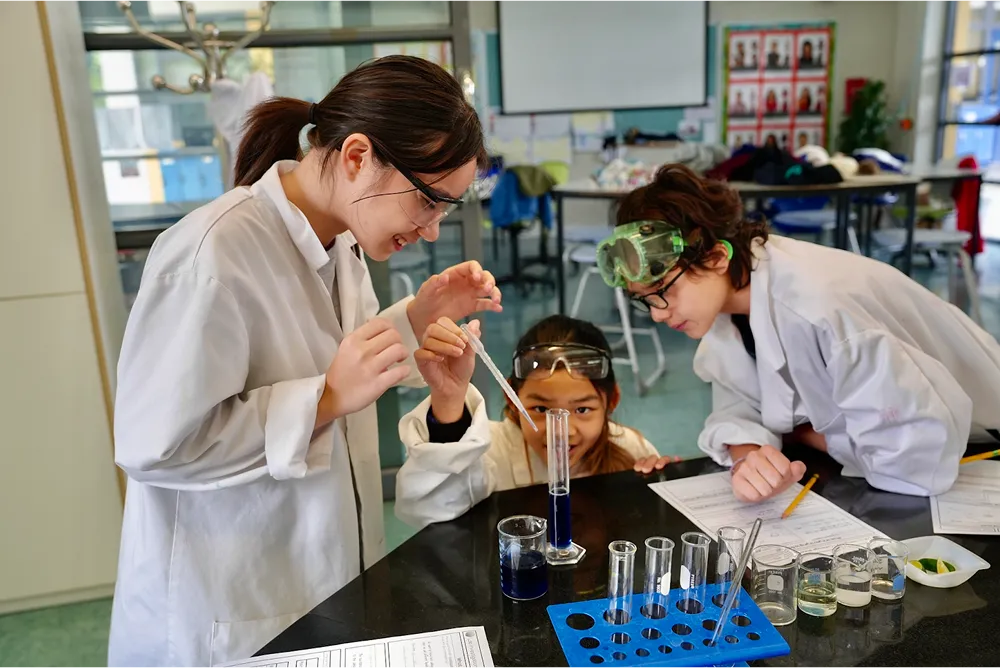
At UNIS Hanoi, the student-led UNISTEM club exemplifies STEM excellence, having developed an “Infection Simulator” game on the Roblox platform.
Organised into design, programming, marketing, finance, and robotics teams, the 35-member group secured an Impact Fund Grant to model pandemic scenarios, teaching players about epidemiology and vaccine development.
How Parents Can Support Interdisciplinary Learning
Parents play a vital role in reinforcing interdisciplinary learning at home. To support your child:
- Encourage Curiosity: Regularly discuss connections between school subjects. For example, explore how mathematical concepts underpin music rhythms or how history shapes scientific advancements.
- Support Projects with Resources: Provide access to books, documentaries, or museum visits that enrich school projects. Collaborate on project planning and offer constructive feedback to deepen understanding.
- Relate School Topics to Real Life: Demonstrate practical applications, for instance, use budgeting exercises to illustrate maths skills, or cook international recipes to discuss geography, culture, and science.
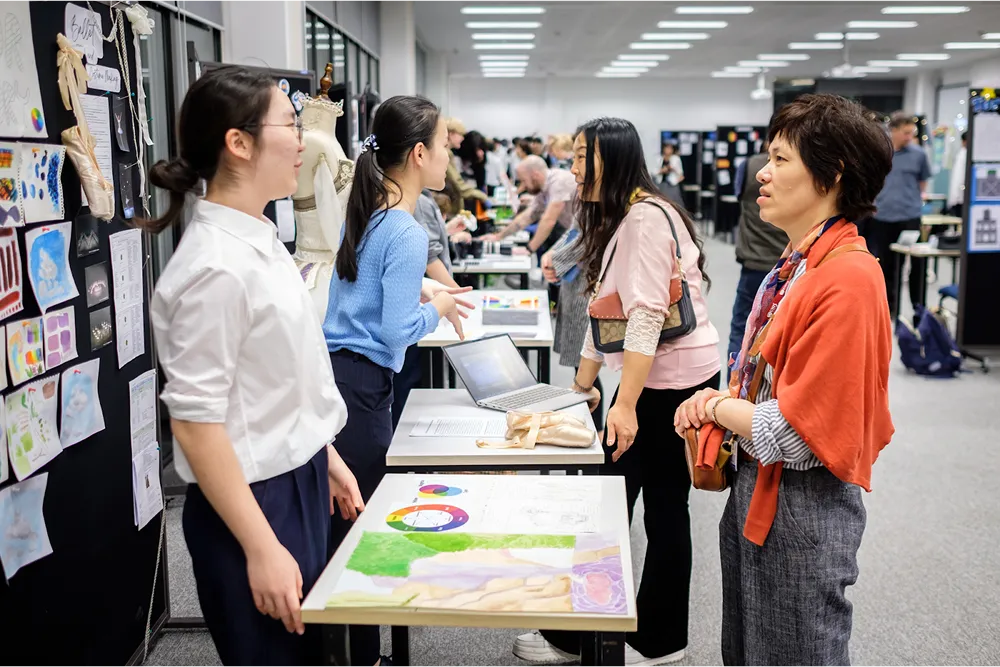
By engaging actively in these ways, parents reinforce the integrated learning experiences that UNIS Hanoi offers, ensuring that students make meaningful connections between their studies and the wider world.
How UNIS Hanoi Implements Interdisciplinary Learning
Our MYP programme is built around interdisciplinary learning, encouraging students to connect knowledge across different subject areas and see the relevance of their studies in real-world contexts.
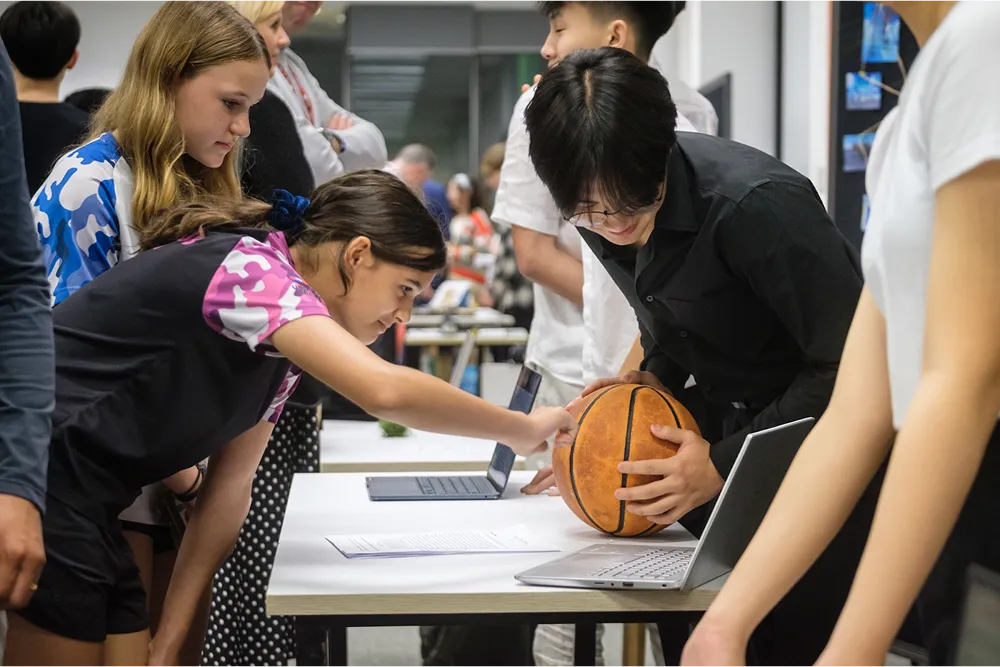
Key elements include:
- Subject Integration: Educators work together to create plans which interlace several units, concepts, and skills from various subjects, ensuring coherence and depth.
- Project-Based Learning: Students investigate complicated problems using a combination of disciplines through authentic, inquiry-based projects that reflect professional practice.
- Team Teaching and Planning: Regular collaborative planning sessions allow educators to align their lessons in broader themes which cross traditional subject boundaries for more unified learning.
- Flexible Grouping: Students work in diverse teams, promoting peer learning and exposing them to varied perspectives and strengths.
- Authentic Assessment: Students who complete exhibitions, develop portfolios, and perform interdisciplinary tasks showcase their learning and demonstrate understanding through authentic assessment.
- Professional Development: Through workshops and other instructional activities and meetings, educators learn new strategies needed to construct and teach interdisciplinary units.
- Reflection and Metacognition: Structured reflection activities encourage students to examine their thinking processes, helping them articulate how they integrate knowledge and develop skills.
- Community Partnerships: Collaborations with local organisations and experts provide real-world contexts for interdisciplinary projects, enriching learning and strengthening community ties.
UNIS Hanoi’s educational philosophy stresses learning as an interactive, integrated process – a hallmark of interdisciplinary education. Our MYP personal projects further promote autonomy, requiring students to design and complete an independent investigation that unites multiple subject areas and addresses genuine interests.
Embrace Interdisciplinary Learning with UNIS Hanoi
Interdisciplinary learning in our MYP ensures students develop the critical thinking, collaboration, and creativity needed for real-world success. At UNIS Hanoi, we integrate subject knowledge through thematic units, projects, and authentic assessments, preparing young learners for future challenges.
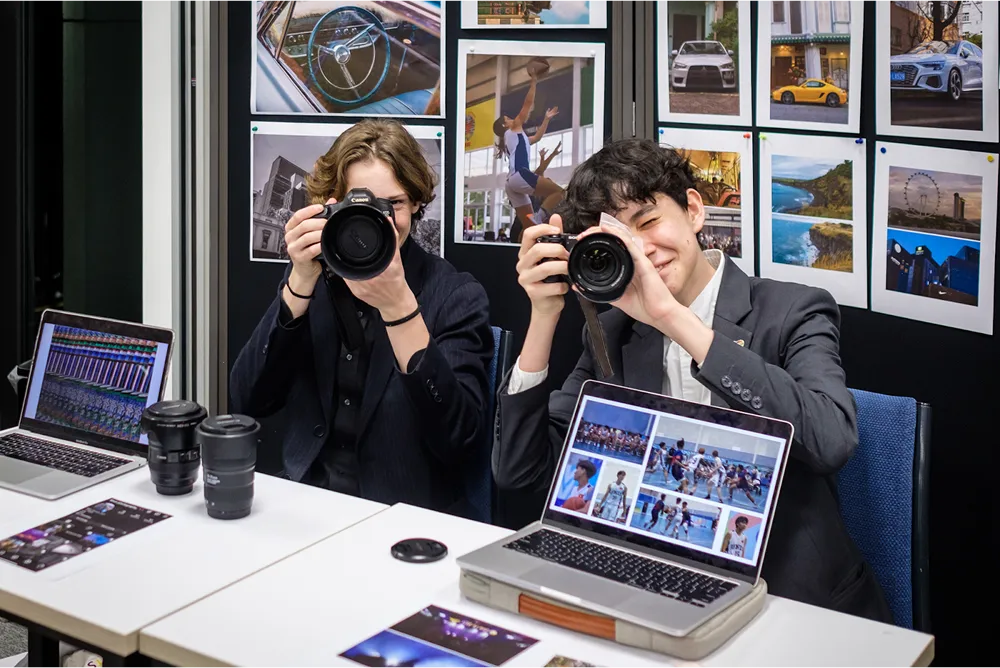
Discover how our holistic, inquiry-driven approach can empower your child’s growth – apply now to join the UNIS Hanoi community.
Author Profile
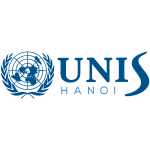
- UNIS Hanoi is ever-evolving, but one thing that remains is our passion to nurture and equip students to be agents of change for a better world.
Latest entries
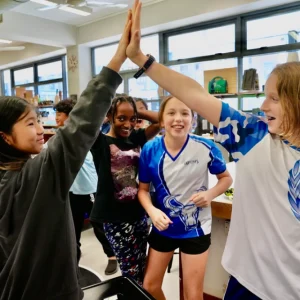 Calendar, News and Publications22 Sep 2025Stress Management Techniques for Students: 8 Proven Methods
Calendar, News and Publications22 Sep 2025Stress Management Techniques for Students: 8 Proven Methods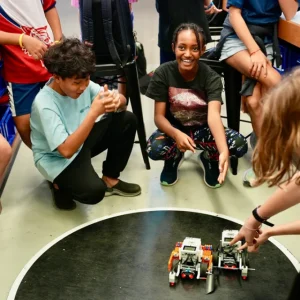 Calendar, News and Publications21 Sep 2025What is an Inclusive Learning Environment? A Parent’s Guide
Calendar, News and Publications21 Sep 2025What is an Inclusive Learning Environment? A Parent’s Guide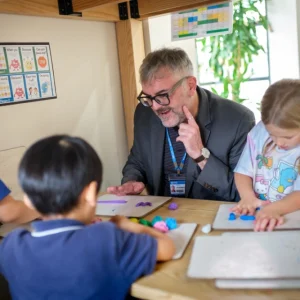 Calendar, News and Publications21 Sep 20258 Game-Changing Innovative Teaching Strategies
Calendar, News and Publications21 Sep 20258 Game-Changing Innovative Teaching Strategies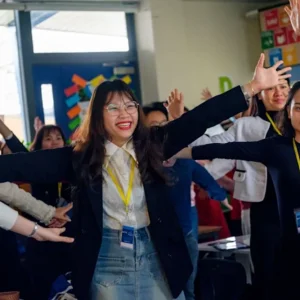 Calendar, News and Publications20 Sep 2025Vietnam Education System: UNIS Hanoi’s Commitment to Local Teachers
Calendar, News and Publications20 Sep 2025Vietnam Education System: UNIS Hanoi’s Commitment to Local Teachers